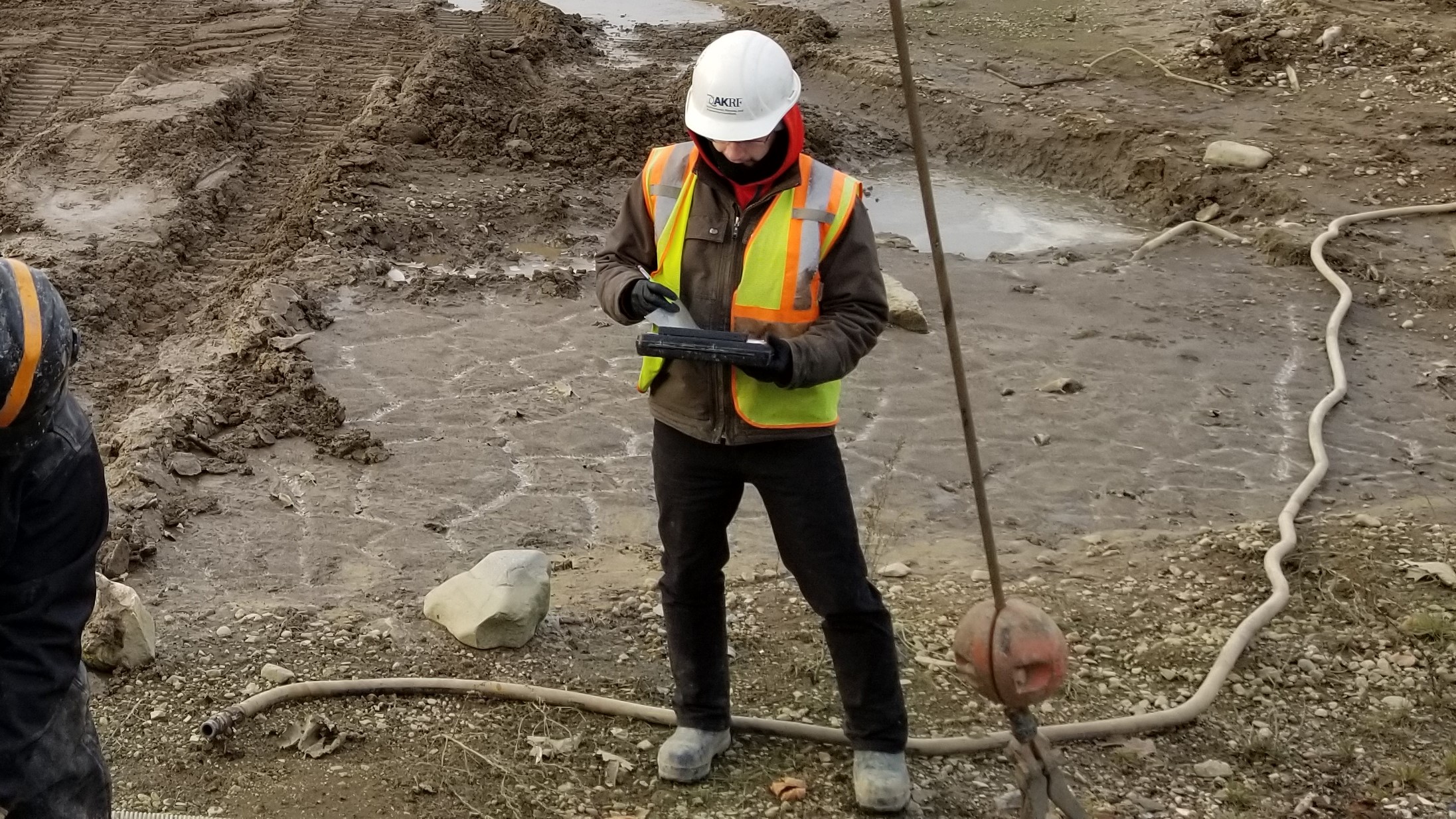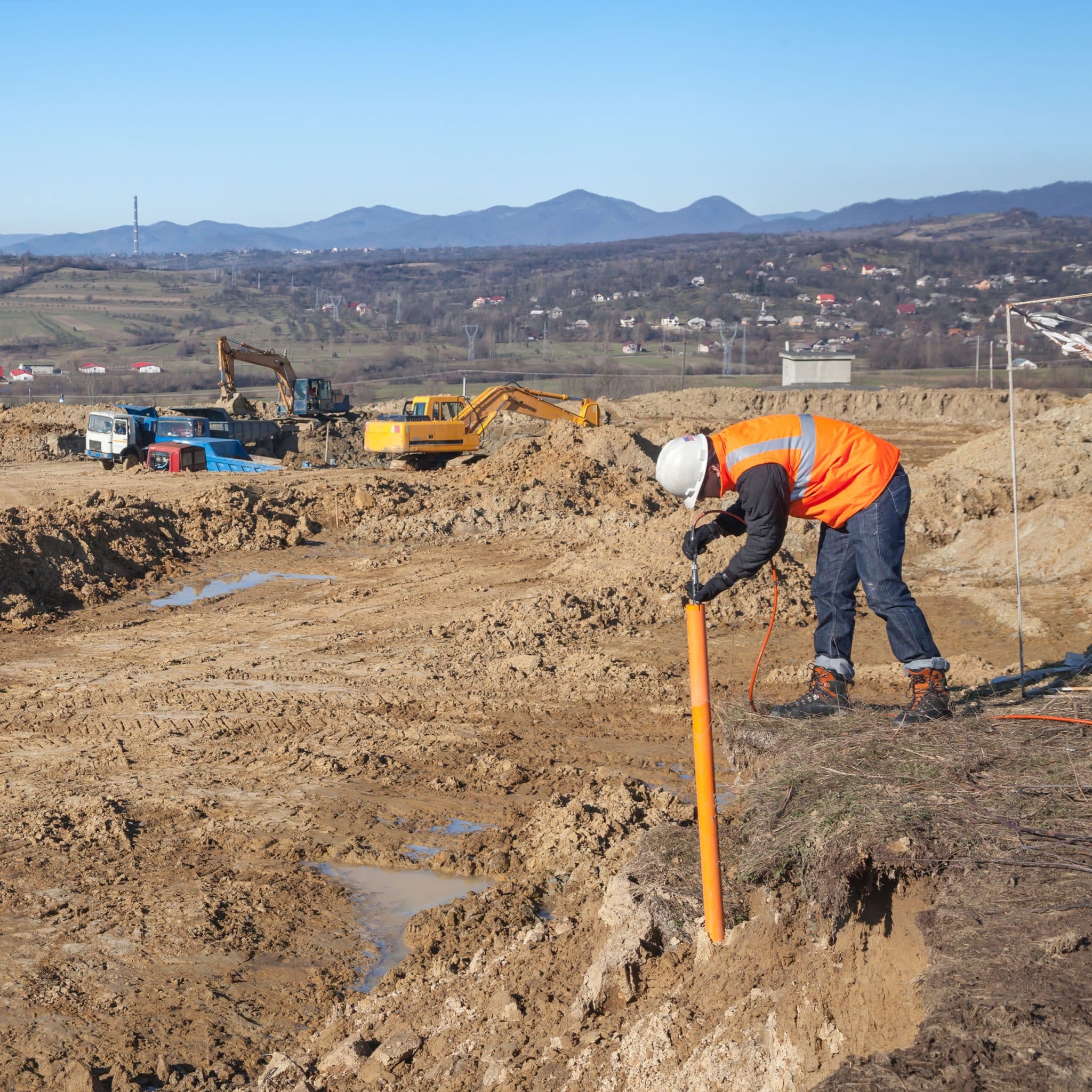A Comprehensive Guide to Becoming an Effective Geotech Engineer
A Comprehensive Guide to Becoming an Effective Geotech Engineer
Blog Article
Recognizing the Comprehensive Function of Geotechnical Engineers in Ground Examination and Dirt Evaluation for Construction Jobs
Geotechnical engineers are integral to the success of building jobs, offering vital understandings through detailed ground investigations and soil evaluation. Their proficiency in evaluating dirt actions and utilizing innovative screening methods informs critical choices that maintain structural stability and safety.
Function of Geotechnical Designers
The pivotal role of geotechnical designers in construction tasks can not be overstated, as they supply necessary understandings into dirt actions and website problems. These professionals are tasked with assessing the suitability of the ground for various types of frameworks, making certain security and security throughout the building and construction procedure. Their know-how incorporates a vast array of tasks, including site characterization, soil tasting, and lab testing, which are vital for establishing the physical and mechanical homes of the soil.
Geotechnical engineers utilize their findings to create foundational designs that suit load-bearing demands and mitigate threats connected to soil negotiation, liquefaction, and incline security. They play a crucial duty in recognizing potential risks, such as groundwater fluctuations and contamination, which can significantly impact task practicality. They collaborate with engineers, civil engineers, and professionals to guarantee that geotechnical factors to consider are incorporated right into the total design and building stages.
Ground Investigation Strategies
Ground investigation strategies develop the foundation of geotechnical engineering, enabling designers to acquire a comprehensive understanding of subsurface problems. These methods are essential for assessing dirt residential properties, identifying groundwater degrees, and identifying possible geological dangers.
Usual approaches consist of borehole boring, which permits the extraction of dirt samples at numerous depths, supplying essential data for analysis. Furthermore, in situ screening methods, such as Common Infiltration Tests (SPT) and Cone Penetration Tests (CPT), are used to review dirt toughness and density directly in the ground.
Geophysical approaches likewise play a significant role in ground examinations. Methods such as seismic surveys and electrical resistivity tomography assistance evaluate subsurface qualities without extensive excavation. geo tech engineering. These non-invasive methods are especially advantageous in large or sensitive areas where interruption should be decreased
Furthermore, exploratory trenches can be dug deep into to visually examine dirt layers and determine any type of abnormalities. Each of these techniques contributes special understandings, enabling geotechnical engineers to establish exact site assessments and notify layout choices. In recap, a mix of these ground examination strategies is important for successful construction projects, making sure security and structural honesty.
Dirt Analysis Methods
Soil analysis methods are vital for recognizing the chemical and physical residential properties of dirt, which directly influence the style and construction of foundations and various other frameworks. Numerous strategies are employed to examine soil characteristics, making sure that geotechnical designers obtain precise data for educated decision-making.
One frequently used method is grain size evaluation, which establishes the distribution of bit sizes within a soil example. This is crucial for identifying dirt types and predicting their actions under tons. Another vital strategy is Atterberg limitations testing, which examines the plasticity and dampness web content of fine-grained soils, giving insights into their design residential or commercial properties.

Area examinations, such as Conventional Infiltration Examinations (SPT) and Cone Infiltration Examinations (CPT), deal useful in-situ information relating to dirt toughness and stratification. Jointly, these dirt evaluation techniques develop the structure of geotechnical investigation, permitting engineers to design effective and risk-free frameworks tailored to the certain problems of the site.
Risk Mitigation Techniques
Applying reliable threat mitigation methods is crucial for geotechnical engineers to address prospective challenges in building and construction tasks. These methods are vital in identifying, analyzing, and handling dangers related to dirt conditions, site security, and groundwater fluctuations, which can adversely impact job results.
One key method entails discover this performing detailed website investigations that make use of innovative geophysical strategies and extensive soil tasting. By acquiring precise information on subsurface conditions, designers can make educated choices on design and building and construction techniques. Furthermore, employing anticipating modeling tools permits the simulation of various circumstances, allowing designers to anticipate potential issues and implement safety nets.
Moreover, developing clear interaction networks amongst task stakeholders promotes a collaborative approach to take the chance of administration. Normal updates and examinations ensure that all celebrations are mindful of the evolving website problems and can adjust their approaches as necessary.

Effect On Construction Jobs
The performance of risk mitigation approaches directly affects the general success of building and construction jobs. Geotechnical engineers play a crucial function in this domain name, as their competence in ground examination and soil evaluation educates vital decisions throughout the construction procedure. By precisely analyzing soil problems and identifying potential risks, these experts allow task groups to devise reliable remedies that lower dangers connected with ground instability, water seepage, and other geotechnical challenges.
The influence More Info of detailed geotechnical analysis is evident in different elements of building and construction jobs, consisting of expense monitoring, job timelines, and structural integrity. Early identification of problems permits prompt treatments, lessening expensive delays and budget plan overruns. A thorough understanding of site problems enhances the layout and engineering procedure, making sure that structures are constructed to endure environmental pressures and prospective all-natural calamities.
Ultimately, the payments of geotechnical engineers are indispensable to the effective implementation of construction projects. Their job not just cultivates safety and compliance with regulations yet likewise improves the long-term sustainability of his explanation frameworks, ensuring that they do effectively throughout their desired lifespan. The collaboration in between other stakeholders and geotechnical groups is vital for achieving ideal results in building and construction ventures.
Verdict
Finally, geotechnical designers execute an important function in building tasks through comprehensive ground examinations and soil evaluations. Their experience in analyzing soil habits, utilizing different investigation techniques, and implementing risk mitigation methods significantly adds to the structural honesty and safety and security of constructed environments. By collaborating with multidisciplinary teams, these specialists improve project performance and ensure conformity with security requirements, ultimately bring about successful construction results and minimized prospective hazards.
Geotechnical engineers are important to the success of building and construction projects, giving necessary insights through detailed ground examinations and soil analysis.The crucial duty of geotechnical designers in construction tasks can not be overemphasized, as they provide essential understandings into soil actions and website problems. Their experience encompasses a vast variety of tasks, including site characterization, dirt tasting, and research laboratory screening, which are crucial for determining the physical and mechanical residential properties of the soil.
By precisely analyzing soil conditions and identifying prospective hazards, these professionals make it possible for project teams to develop effective solutions that lower risks associated with ground instability, water seepage, and various other geotechnical challenges.
In final thought, geotechnical designers perform an important function in construction tasks through comprehensive ground investigations and dirt evaluations.
Report this page